Inflammation is a natural defense mechanism, but when it becomes chronic, it can silently wreak havoc on your body. Studies have linked chronic inflammation to heart disease, diabetes, arthritis, and even Alzheimer’s. The good news? You can take control of your inflammation — and your long-term health — simply by making smarter food choices.
In this article, we’ll explore 10 powerful anti-inflammatory foods you can add to your daily meals, along with practical ways to incorporate them. These foods don’t just help fight inflammation; they also support better digestion, boost immunity, and promote healthy aging.
✅ Disclaimer: This content is intended for educational purposes only. Please consult a licensed healthcare provider before making any changes to your diet, especially if you have existing medical conditions or are taking medication.
Why Choose an Anti-Inflammatory Diet?
A modern lifestyle filled with processed foods, sugar, and stress can lead to chronic inflammation. The antidote lies in natural, nutrient-dense foods that supply your body with antioxidants, healthy fats, vitamins, and minerals. Adopting an anti-inflammatory diet is not just a health trend — it’s a proven strategy for longevity and vitality.
🥬 1. Leafy Greens (Spinach, Kale, Swiss Chard)
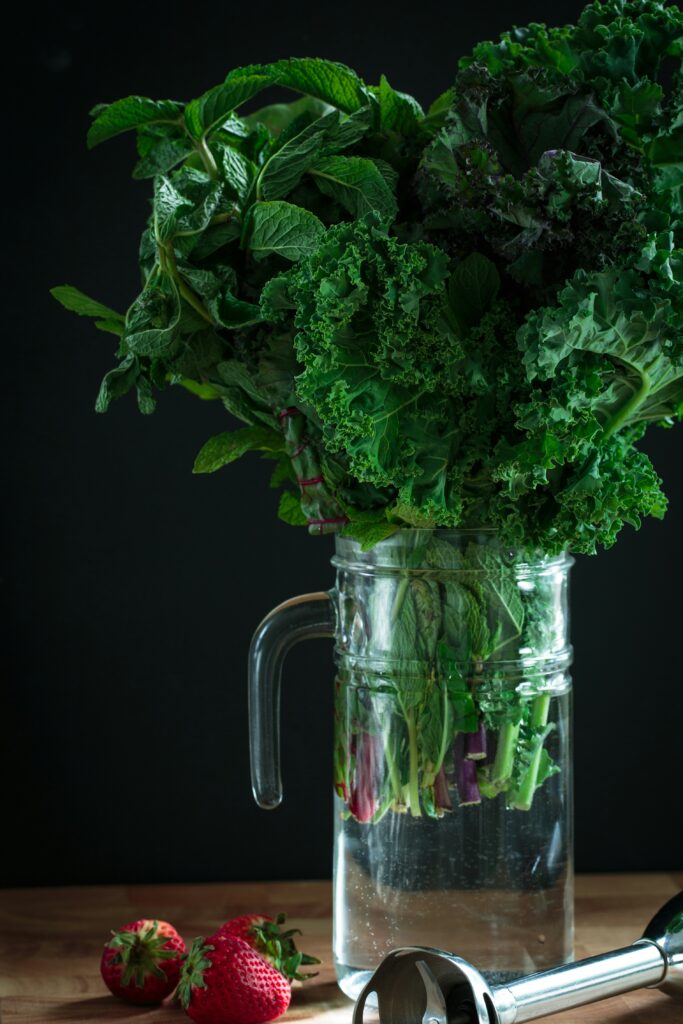
Leafy greens are nutritional powerhouses, rich in antioxidants like beta-carotene and vitamins A, C, and K. These nutrients help neutralize free radicals and suppress inflammatory responses in the body. Magnesium in greens also plays a crucial role in lowering inflammation markers.
How to eat more: Toss kale or spinach into smoothies, sauté with garlic for a side dish, or mix raw greens into salads.
💡 Pro tip: If you’re short on time, try adding a scoop of organic kale powder to your daily smoothie or use spinach capsules to boost your intake on the go.
🫐 2. Berries (Blueberries, Strawberries, Raspberries)

Berries are packed with polyphenols and anthocyanins that actively reduce oxidative stress and inflammation. Research shows that regular berry consumption can decrease inflammatory markers like CRP (C-reactive protein) in the blood.
How to eat more: Top your morning oatmeal with berries, blend them into smoothies, or enjoy as a refreshing snack.
💡 Pro tip: Stock up on freeze-dried blueberries or organic berry supplement blends to keep the benefits going even when fresh berries aren’t in season.
🐟 3. Fatty Fish (Salmon, Mackerel, Sardines)
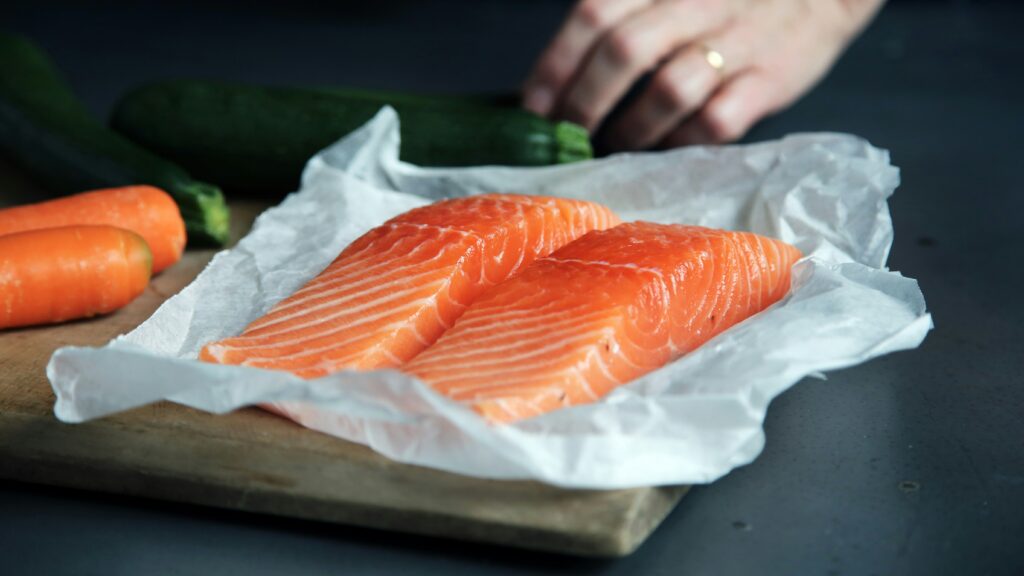
Fatty fish are loaded with omega-3 fatty acids — specifically EPA and DHA — which are well-known for their anti-inflammatory effects. These healthy fats help reduce inflammation in blood vessels, joints, and even the brain.
How to eat more: Aim for 2-3 servings per week. Grill or bake salmon, add sardines to salads, or make a tuna wrap.
💡 Pro tip: If fresh fish isn’t always an option, a high-quality omega-3 fish oil supplement is a convenient and effective way to support your anti-inflammatory goals.
🧄 4. Garlic
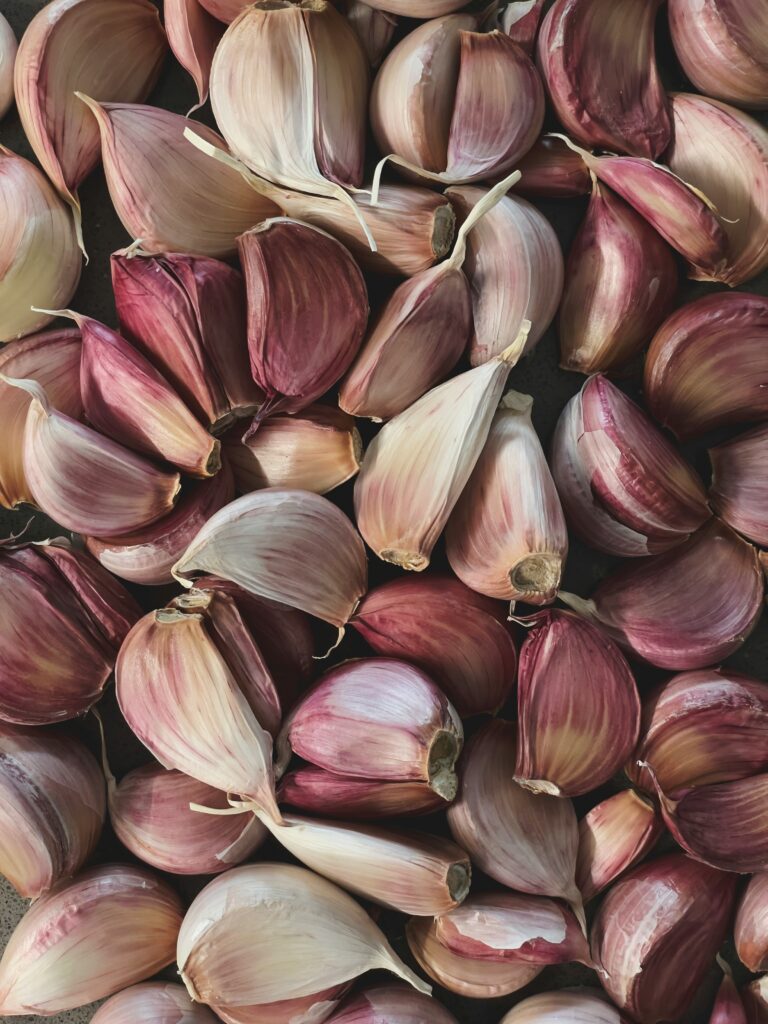
Garlic contains a powerful compound called allicin, which has been shown to boost immune function and reduce inflammation. It also helps lower blood pressure and improve cholesterol levels — both linked to inflammatory diseases.
How to eat more: Use it raw in salad dressings, roast it for a milder flavor, or add minced garlic to soups and stews.
💡 Pro tip: Keep some organic minced garlic in your pantry for easy cooking, or take odorless garlic capsules if you prefer a supplement.
🌰 5. Nuts and Seeds (Almonds, Walnuts, Chia, Flaxseeds)
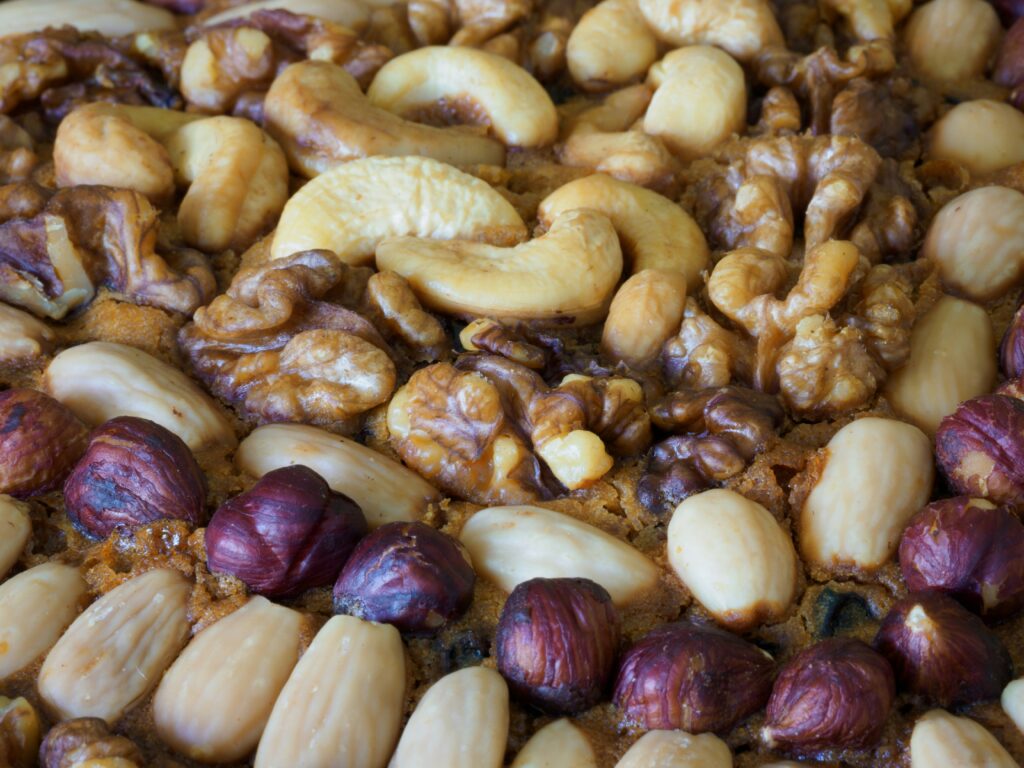
These tiny foods are big on benefits. They’re rich in fiber, omega-3 fatty acids, and antioxidants. Walnuts and flaxseeds, in particular, are known to reduce levels of CRP and interleukin-6, two key markers of inflammation.
How to eat more: Sprinkle flaxseeds or chia seeds into smoothies and yogurt, snack on almonds, or add walnuts to salads.
💡 Pro tip: Get a ready-made anti-inflammatory nut and seed mix or stock up on organic chia seeds for daily use.
🫒 6. Extra Virgin Olive Oil
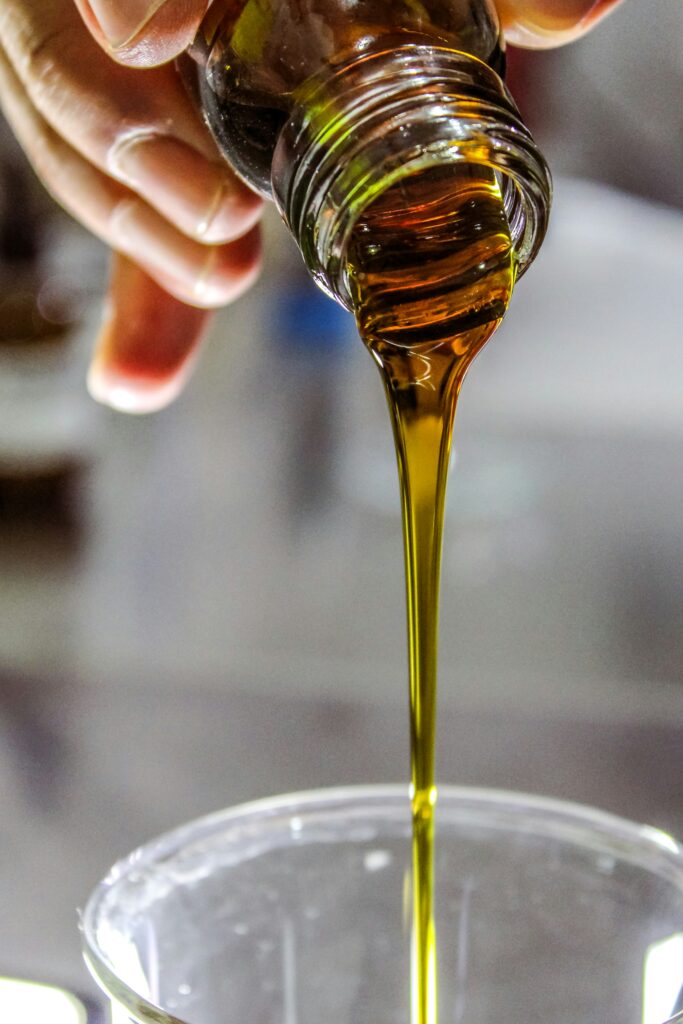
A staple of the Mediterranean diet, extra virgin olive oil is rich in oleocanthal — a compound with effects similar to ibuprofen. It also contains healthy monounsaturated fats that reduce inflammation and support heart health.
How to eat more: Use it in salad dressings, drizzle over roasted veggies, or as a dip for whole-grain bread.
💡 Pro tip: Choose a cold-pressed, certified organic olive oil for maximum health benefits.
🍅 7. Tomatoes
Tomatoes are high in vitamin C, potassium, and lycopene — a carotenoid antioxidant that has been shown to lower inflammation, particularly in the lungs and skin. Lycopene is more bioavailable when tomatoes are cooked.
How to eat more: Use in sauces, soups, or roast them as a side dish.
💡 Pro tip: For convenience, add lycopene-rich tomato extract to your supplement stack.
🧡 8. Turmeric
Turmeric is a golden spice best known for its active ingredient, curcumin, which has been extensively studied for its anti-inflammatory effects. It works by blocking molecules like NF-kB, a major player in inflammation.
How to eat more: Add turmeric to curries, rice, or tea. Combine with black pepper to enhance absorption.
💡 Pro tip: Try high-absorption turmeric capsules with black pepper or stir in organic turmeric powder to your morning smoothie.
🍵 9. Green Tea
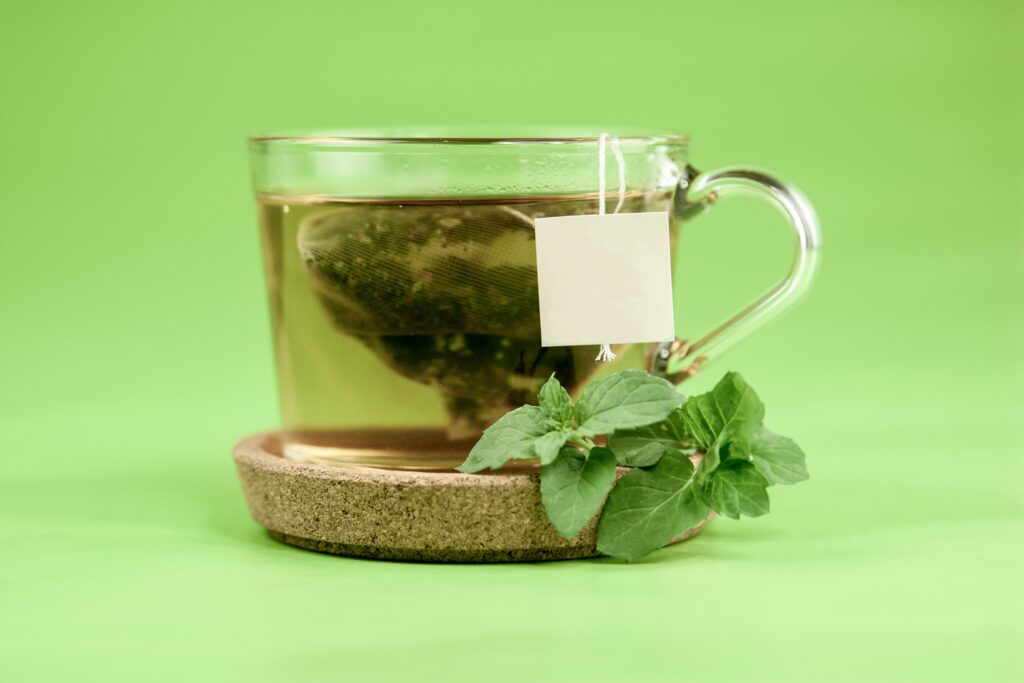
Green tea is a rich source of catechins and EGCG — powerful compounds that reduce inflammation and protect cells from damage. Daily consumption has been linked to lower risks of chronic diseases.
How to drink more: Brew 1–2 cups a day, or use matcha powder for a more concentrated dose of antioxidants.
💡 Pro tip: Opt for ceremonial-grade matcha powder or premium green tea bags for daily use.
🍫 10. Dark Chocolate

Yes, chocolate can be good for you — if you choose the right kind. Dark chocolate (with 70%+ cocoa) is full of flavonoids that reduce inflammation and improve heart health.
How to eat more: A small piece after meals is all you need. Avoid brands with added sugar or milk.
💡 Pro tip: Go for organic dark chocolate bars with 85% cocoa to maximize the benefits.
🛠 Bonus Tips for a Low-Inflammation Lifestyle
- 🔄 Stay consistent: Anti-inflammatory foods work best when eaten regularly.
- 🚫 Avoid processed foods: Say no to trans fats, refined sugars, and excess alcohol.
- 💧 Stay hydrated: Water helps flush toxins that contribute to inflammation.
- 🧘 Manage stress: Chronic stress can trigger inflammation, so practice mindfulness and breathing exercises.
- 🛌 Prioritize sleep: Poor sleep increases inflammatory markers like CRP.
Final Thoughts
Your food choices matter more than you think. By incorporating these 10 anti-inflammatory foods into your daily routine, you’re not only nourishing your body — you’re actively protecting it from chronic illness. Even small changes, like switching to olive oil or adding turmeric to your soup, can make a big difference over time.
Start today. Your body will thank you tomorrow.
✅ Medical Disclaimer: The information provided in this article is for educational purposes only and is not intended as a substitute for professional medical advice. Always consult with your doctor or healthcare provider before making significant dietary changes or starting new supplements.

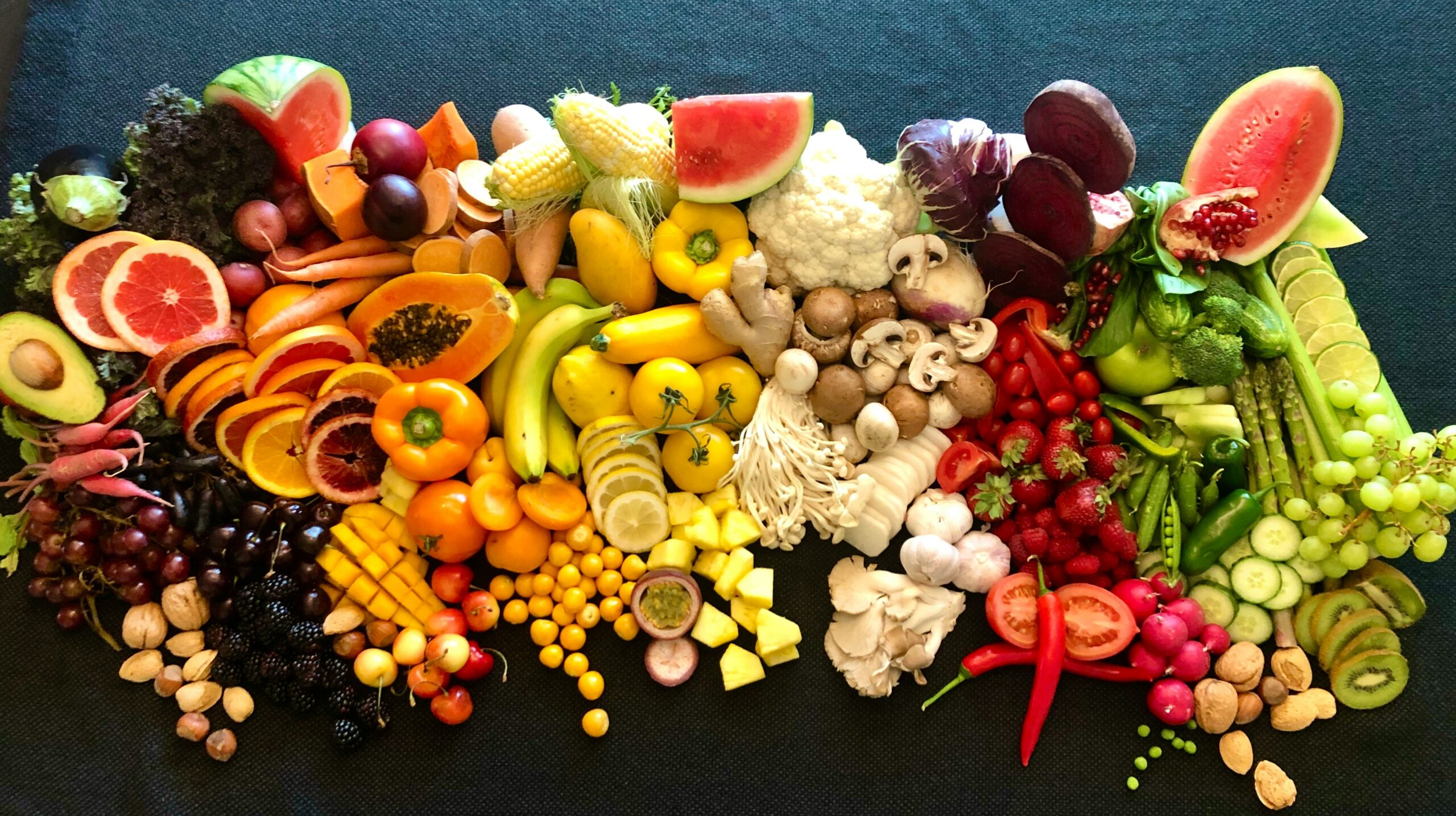
Leave a Reply